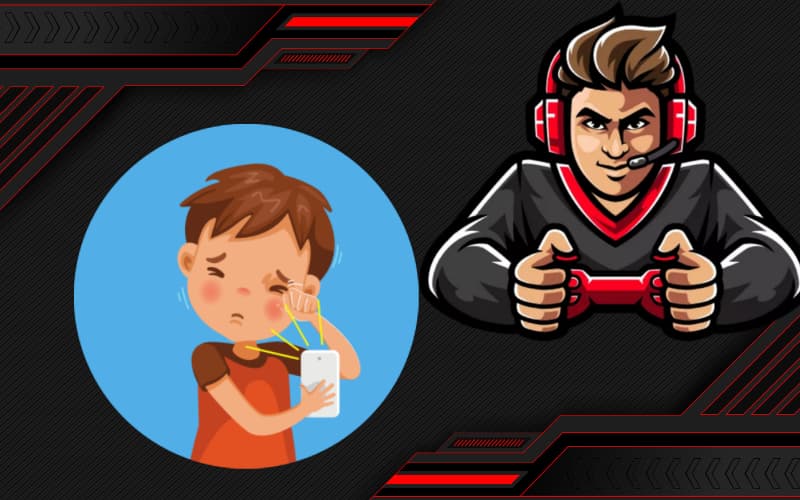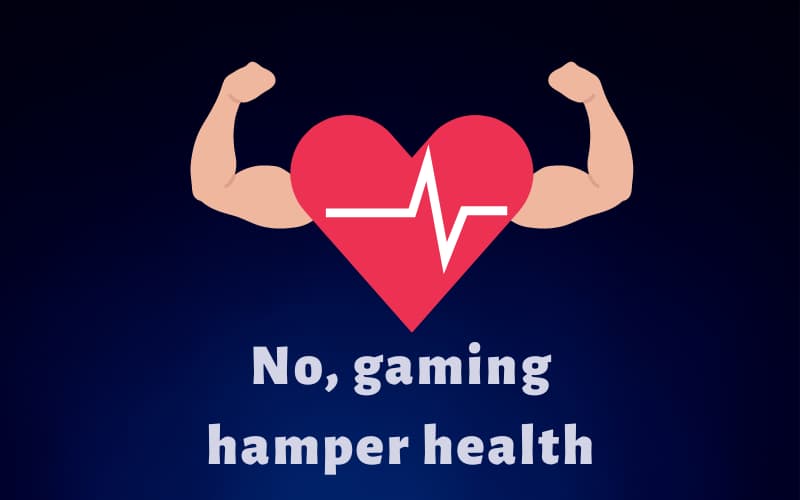Gaming is big business. Ever since the first arcade machines found their way into American garages and bowling alleys, it’s been a pastime activity that’s been enjoyed by all types of gamers.
However, in the last couple of decades, advancements in gaming technology have made some pretty outlandish claims about the effects video games have on your brain and your body.
And these myths can be pretty misleading. I will try to debunk some of them and show you how most of the “facts” that are presented are not facts at all.

Video games cause players to become more violent
Video games cause gamers to become more violent: It has long been one of the biggest myths about gaming.
Many tries have been made to find out if seeing or playing violent video games leads to aggressive behavior among gamers or not. The studies give mixed results.
However, in a recent study of over 2,000 teenagers, reportedly, there was no proof that playing violent games led teens to become more aggressive or any less social.
Gaming is a waste of time

This couldn’t be farther from the truth. Gaming does not have to be a waste of time. And if you play games the right way and for the right reasons, then gaming can, in fact, be beneficial to your life.
For one, gaming has earning potential if you play well. There are eSports professional gamers who make anything from $1,000 to $5,000 monthly.
You just have to invest in the best processor for gaming to be able to game professionally and start earning by gaming.
You can also consider live streaming on YouTube and Twitch to increase your income potential.
No one wants to see in-game ads

A common talk is that people don’t like ads in their games. But, the truth is quite a bit different. It’s more about bad use by the developer, not the gamer not wanting ads.
On the other side, there are rewarded video ads started by the user that give them in-app prizes, like in-app money or premium content. In fact, in the US alone, 74% of mobile gamers are willing to view an in-game ad, provided they get in-app benefits in return.
Also, 82% of mobile gamers prefer free mobile games with advertisements rather than paid mobile games without any ads.
Gamers are all male

The gaming world is not just for males — though it may look like that at times. In fact, many female gamers are there too. And the number of female gamers is growing fast around the world.
In fact, in 2019, 46% of all computer and video gamers were female in the US.
Only young people play video games
No, video games are not played exclusively by the young generation anymore.
There are misconceptions that games like Call of Duty are played only by tech-savvy millennials. But the truth is, that people of all ages enjoy gaming.
In fact, 2021 statistics suggest that 7% of video gamers in the US are 65 years and older.
The market for video games is primarily targeted at children

Though mostly only kids used to play video games in the past, more and more contemporary games are hitting the market with 18+ ratings. In fact, a considerable percentage of the console and PC market is exclusive to ages 18 or older.
There are also video games that are rated for Adults Only.
Gamers fail to adjust themselves well socially

Gamers are often stereotyped as being antisocial and awkward. They are perceived as people whose hobbies of computer games or online games make them addicted to electronic gadgets, playing games online, and ignoring others.
However, a study that surveyed more than 2000 teenagers proved otherwise. The study found that gaming does not make teenagers more aggressive or any less social.
Gaming isolates people
Many people think that gaming isolates people and that people who play video games are anti-social. But just because people believe it to be accurate doesn’t make things so.
If anything, many online games revolve around online collaboration, conversation, and real-life connections. There is a real rise of multi-player games, such as Among Us and Call of Duty, that let people play, collaborate, and socialize with other games worldwide.
Gaming can hamper mental health and well-being

Many people feel gaming can cause mental health issues or make them worse. But these claims seem silly.
If anything, gaming can provide an excellent way to relax or a way to wind down after a hard day.
In a study, 78% of gamers said that playing games provided them with a form of stress relief and relaxation. And 79% said that gaming offered them mental stimulation.
The same study demonstrates that 164 million adults in the US alone enjoy playing video games. So the belief that gaming can hamper mental health and well-being is nothing but a myth.
Games only have negative themes

While some games show negative themes, they also have a deeper message.
Take Gears of War 3, for example. On the surface, it appears as if gory and bloodshed are the only themes surrounding the game. But at its heart, the game narrates the story of a father and son.
Similarly, if you dig deeper, a lot of games with seemingly negative themes will turn out to have a positive, meaningful message.
Wrapping-Up
There are a lot of myths about gaming, so we busted some of the most common ones in this article.
Many myths, wrong info, and broad statements about gaming have three bad effects. They take away the energy and resources of gamers, they give gaming a bad name and push gamers to the side, and they can make people not want to fix problem gaming behaviour.
So, it’s important to understand gaming better and not believe in false ideas. By knowing the real effects of gaming, both good and bad, we can healthily enjoy gaming. We can also make gaming a positive part of our lives and our society. This way, we can end the bad views on gaming and help gamers feel accepted and understood.